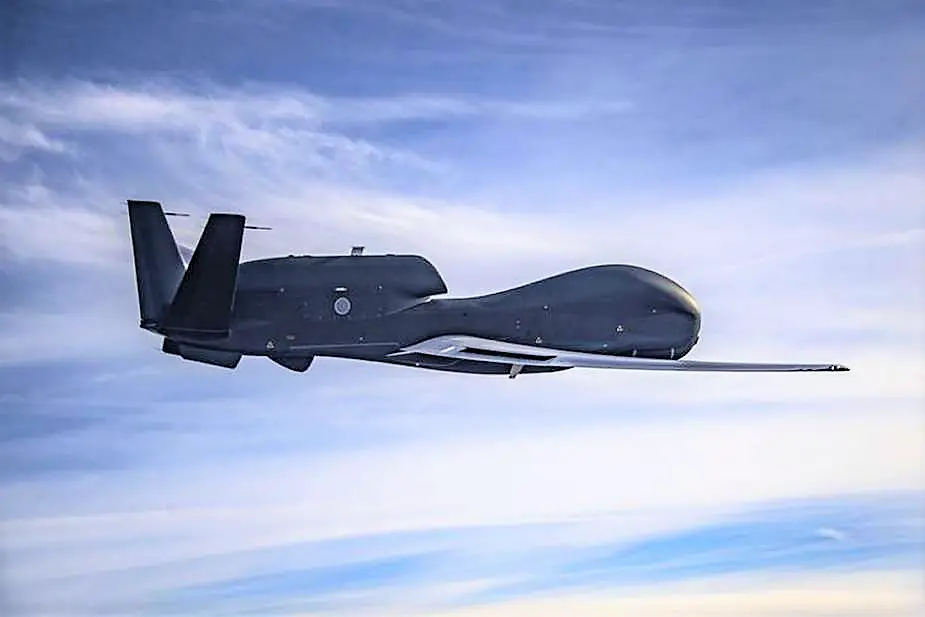Northrop Grumman ferried the first of Japan’s three RQ-4B Global Hawks via a non-stop transpacific flight. The aircraft departed on Thursday, March 10, from Palmdale, California landing 18.7 hours later on March 12 at Misawa Air Base, Misawa, Japan.
Follow Air Recognition on Google News at this link
 Northrop Grumman’s RQ-4B Global Hawk aircraft will provide the Japan Air Self-Defense Force with persistent, high-altitude surveillance of the Indo-Pacific. (Picture source: Northrop Grumman)
Northrop Grumman’s RQ-4B Global Hawk aircraft will provide the Japan Air Self-Defense Force with persistent, high-altitude surveillance of the Indo-Pacific. (Picture source: Northrop Grumman)
“The arrival of the first Japanese Global Hawk is an important milestone in the development of this critical security asset,” said Jane Bishop, vice president and general manager, global surveillance, Northrop Grumman. “The autonomous Global Hawk will provide the Japan Air Self-Defense Force with persistent, high-altitude surveillance of the Indo-Pacific. Global Hawk’s intelligence, surveillance and reconnaissance (ISR) capabilities will provide invaluable support to Japanese national security and to the security of allies across the region.”
RQ-4B Global Hawk, a large high-altitude, long-endurance (HALE) uncrewed aerial vehicle (UAV), is equipped with mission-specific sensors to meet critical ISR needs. This capability will change the way allies monitor threats and provide humanitarian assistance and disaster response day or night. Combined with other Japanese intelligence assets, the advanced UAV will provide solutions to monitor and deter regional threats, contributing to Japan’s national security well into the future.
Northrop Grumman’s family of autonomous HALE systems, including Global Hawk, are critical components of networked, global ISR collection for allied nations around the world. The ISR data enables decision-makers to act in a timely manner, deterring aggression and responding to emerging threats. Japan, with its Global Hawk fleet, will be part of a growing list of allied nations operating HALE UAVs. The United States, Australia, NATO and Korea will all be operating versions of this vital national security asset.
















